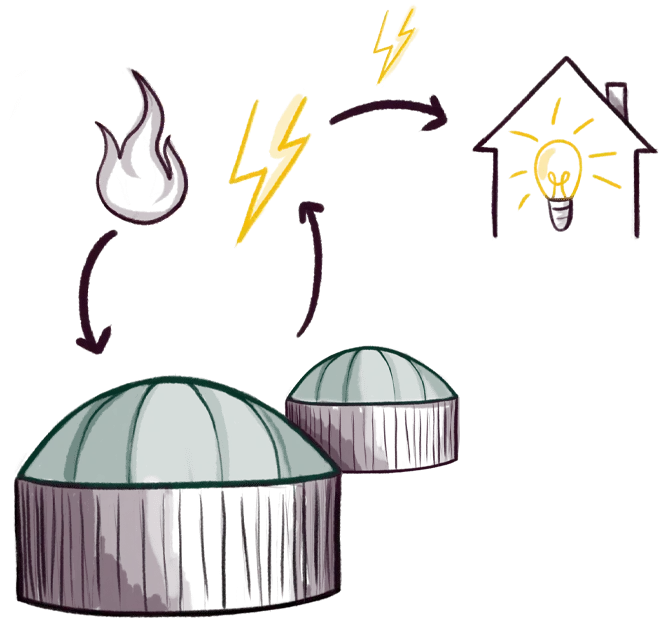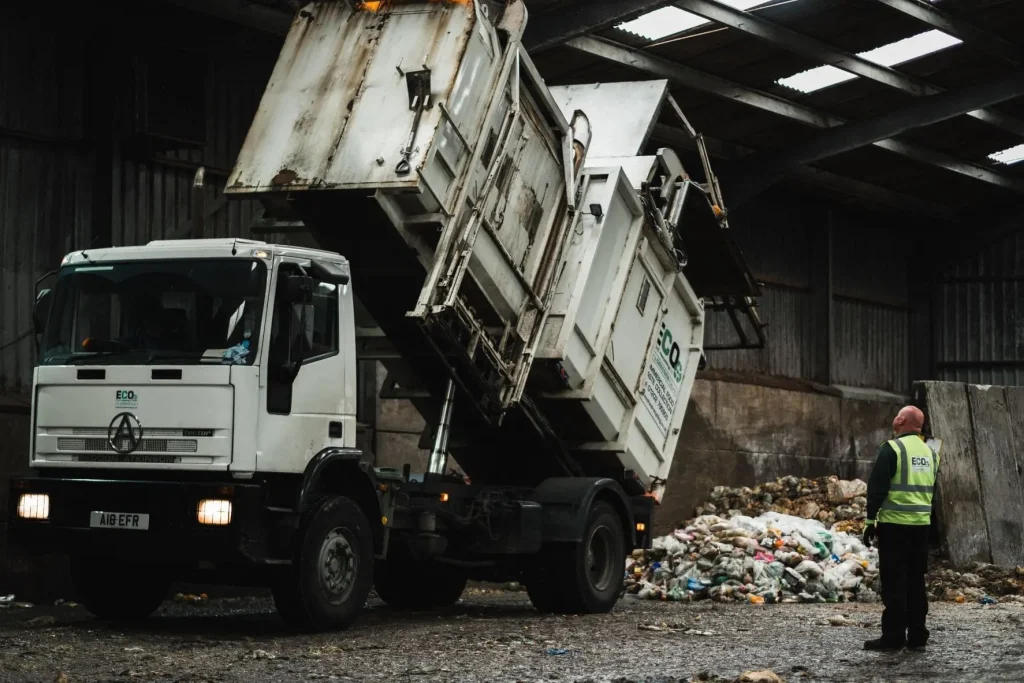Piddlehinton
Anaerobic Digestion Facility
Anaerobic digestion (AD) is a biological process where food waste and other organic materials are broken down by micro-organisms in the absence of light and oxygen. The outputs are bio-gas, which can be upgraded, as a renewable fuel as well as nutrient-rich bio-fertiliser.
Eco’s first AD facility was built in 2012 and is based just outside of Piddlehinton, in the heart of Dorset. Strategically located to minimise waste miles whilst, at the same time, maximising the outputs of the process in supplying heat and power to a neighbouring animal feed factory, as well as the bio-fertiliser to local farms. Our AD facility at Piddlehinton, has prevented over 147,925 tonnes of CO2 from being emitted into the planet’s atmosphere.
Our unique front-end processing equipment allows customers to deposit waste directly and safety into the feed bunker before the intelligent de-packing equipment gets involved. The waste is cleaned and macerated into a soup, with the plastic and other contamination removed. The soup is then pumped into one of two large digesters, where it is mixed to optimise the biological environment, promoting bacteria activity.
The bio-gas is captured and filtered into a bio-methane which is suitable to fuel one of 4 large engines, with the power output being fed directly to a next door industrial animal feed mill and any left-over spilled to the National Grid. The heat from the engines is harnessed to pasteurise the spent food soup, killing harmful pathogens and ensuring full environmental integrity.
Optimum conditions are constantly being monitored and maintained by trained technician utilising on-site labourity and daily sampling regimes.
Once pasteurised, the spent material, which is certified to PAS:110 provides an ideal bio-fertiliser, which gets collected by local farmers and spread to land to continue the cycle.
Key Facts
Size: 1.6MWe
Cost: £7m
Constructed: 2012

